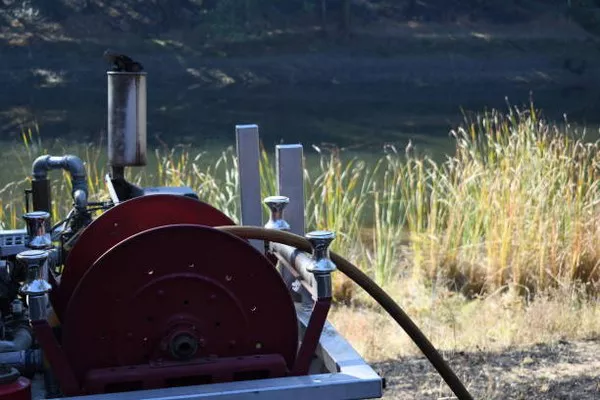In an era marked by technological dependence and a constant need for uninterrupted power supply, backup generators have become a cornerstone of resilience for both residential and commercial settings. These essential devices serve as a reliable source of power during outages, ensuring that critical operations continue seamlessly. However, one crucial aspect that often goes overlooked is the lifespan of backup generators. Understanding how long these generators last is pivotal in making informed decisions about installation, maintenance, and replacement.
Factors Influencing Backup Generator Lifespan:
Several factors play a significant role in determining the lifespan of backup generators. Manufacturers design these units with durability in mind, but environmental conditions, maintenance practices, and usage patterns all contribute to the overall longevity. Let’s delve into these factors to gain a comprehensive understanding.
1. Quality of Manufacturing:
The quality of the generator itself is a fundamental factor. Higher-end models, typically constructed with robust materials and advanced engineering, tend to have a longer lifespan. It is essential to invest in a generator from a reputable manufacturer known for producing reliable and durable equipment.
2. Environmental Conditions:
The operating environment significantly impacts the lifespan of backup generators. Generators exposed to extreme weather conditions, such as intense heat, cold, or high humidity, may experience accelerated wear and tear. Proper installation and sheltering can mitigate these effects, ensuring the generator operates optimally.
3. Maintenance Practices:
Regular and proactive maintenance is paramount in extending the lifespan of backup generators. Neglecting routine tasks, such as oil changes, filter replacements, and overall system checks, can lead to premature failure. Adhering to the manufacturer’s maintenance guidelines and scheduling professional inspections is crucial for optimal performance.
4. Fuel Quality:
The type and quality of fuel used in the generator also influence its longevity. Stale or contaminated fuel can lead to clogged filters, engine damage, and reduced efficiency. Employing a proper fuel management system and using high-quality fuel are essential for ensuring the generator’s longevity.
5. Usage Patterns:
The frequency and duration of generator usage impact its lifespan. Generators designed for intermittent use may have a longer life expectancy than those subjected to continuous operation. Understanding the generator’s intended purpose and selecting a model that aligns with usage requirements is vital for maximizing its lifespan.
Determining the Average Lifespan:
While individual circumstances may vary, the average lifespan of backup generators typically ranges between 20 to 30 years. However, this estimate assumes regular maintenance, proper installation, and favorable environmental conditions. Generators that receive neglect or are exposed to harsh elements may experience a significantly shorter lifespan.
Prolonging Generator Lifespan through Maintenance:
Scheduled Inspections: Regular professional inspections allow for the early detection of potential issues. These inspections can identify worn-out parts, loose connections, or other problems that, if addressed promptly, can prevent major breakdowns and extend the generator’s lifespan.
Fluid Checks and Changes: Engine fluids, including oil and coolant, play a crucial role in the proper functioning of generators. Regular checks and timely changes ensure that the engine operates at its optimal temperature and reduces the risk of internal damage.
Filter Replacements: Air and fuel filters prevent contaminants from entering the generator’s engine. Regular replacements as per the manufacturer’s recommendations help maintain peak efficiency and prevent issues associated with clogged filters.
Load Testing: Periodic load testing simulates real-world operating conditions and helps identify potential problems before they escalate. This practice ensures that the generator can handle its intended load and provides insights into its overall health.
When to Consider Replacement:
Despite meticulous maintenance, there comes a point when replacing a backup generator becomes the most practical and cost-effective option. Signs that a generator may be approaching the end of its lifespan include:
Frequent Breakdowns: If a generator requires constant repairs or experiences breakdowns even after maintenance, it may be more cost-effective to invest in a new unit.
Decreased Efficiency: A generator that struggles to meet its load requirements or experiences a decline in performance may indicate underlying issues that are not easily rectifiable.
Obsolete Technology: Advancements in generator technology may render older models less efficient and more challenging to maintain. Upgrading to a newer, more efficient model can provide improved reliability and performance.
See Also How Long Can A Portable Generator Run Continuously
Conclusion:
Backup generators are indispensable assets for maintaining productivity and security during power outages. Understanding the factors influencing their lifespan and adopting a proactive approach to maintenance are key components of ensuring their longevity. While the average lifespan of backup generators falls within the 20 to 30-year range, individual circumstances may vary. Regular inspections, fluid changes, and adherence to usage guidelines can significantly extend a generator’s life. However, when signs of inefficiency or frequent breakdowns arise, considering replacement becomes a strategic decision to safeguard against unexpected power failures. In navigating the lifespan of backup generators, a balance between investment in quality equipment and consistent maintenance practices is the pathway to sustained resilience.

